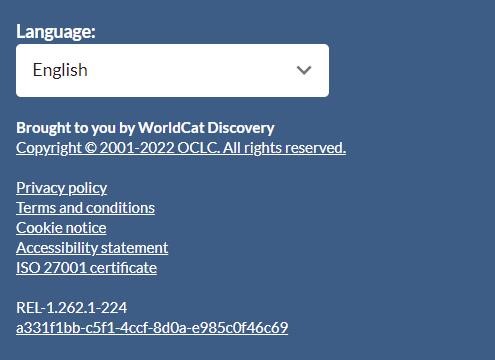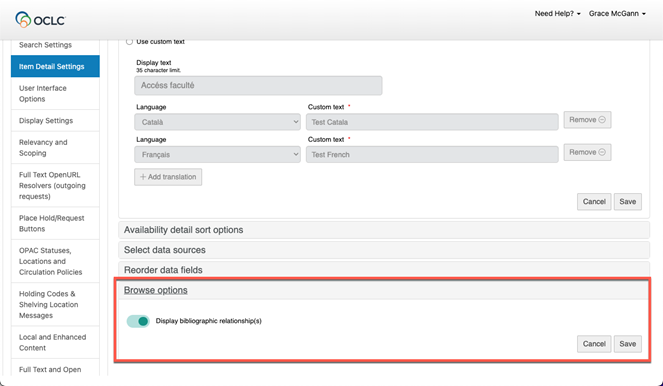WorldCat Discovery Release Notes, 18 March, 2024
Release Date: March 18, 2024
Introduction
This release of WorldCat Discovery includes the following enhancement to help you manage more complex workflows:
- Link to items related hierarchically (beta)*
Many of these enhancements are the direct result of your feedback.
* This feature is only available for WorldCat Discovery Premium and WMS libraries.
Recommended actions
For this release, we recommend that you review the following checklists and complete the relevant tasks so that you can adjust your policies and workflows and train your staff. These checklists identify updates that we have determined as significant for most institutions. We encourage you to review all of the items in the release notes to determine whether there are other items that might require additional action or follow up by your institution.
Administrative actions
These items require immediate action or decisions.
| Action |
|---|
|
Review service configuration to determine if you would like to enable this experience. |
New features and enhancements
Link to items related hierarchically (beta)*
With the 18 March 2024 release, WorldCat Discovery Premium and WMS users will be able to access a new experience where they can navigate hierarchically related records in WorldCat Discovery.
Relationships in the MARC 773, 800, 810, 811, and 830 fields cataloged using a valid OCLC Control Number (OCN) in the control $w will be represented in this new experience.
You can activate display of these relationships on the item details page by navigating to Service Configuration > WorldCat Discovery and WorldCat Local > Item Detail Settings > Browse Options.
If a record is cataloged with hierarchical relationships, those relationships can be located at the bottom of the item details page in a new tab called “Browse related items.” This tab will be located with other browse experiences “Browse the Shelf” and “Explore Editions & Formats.” There, users will find links to three possible relationships (when they exist).
These can be thought of as whole-part relationships.
· In: an item is part of another item, like a volume (part) of an encyclopedia (whole).
· Contains: an item contains something else, like an archival collection (whole) contains items (parts).
· Grouped with: multiple items are part of the same whole, as in the previous example, where items that are parts of the same archival collection would fall under this “grouped with” relationship.
Example Display for an item that contains other items:
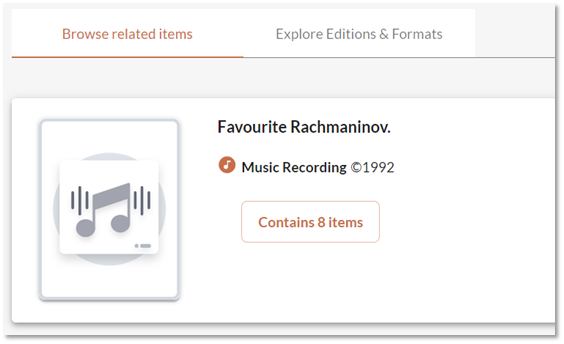
Example Display for an item that is part of another item:
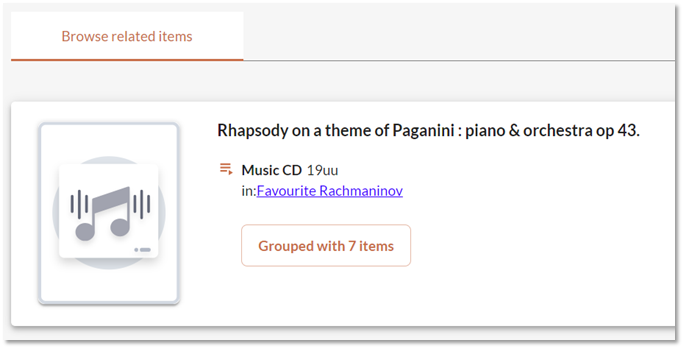
Selecting the "in” title will bring the user to the item details page.
Selecting “grouped with” relationships brings the user to a modified search results view of all the related items, as outlined in the image below. Selecting “contains” relationships will bring users to a modified search results view of items contained by the title.
Modified search results listing items (parts) grouped within the same containing item:
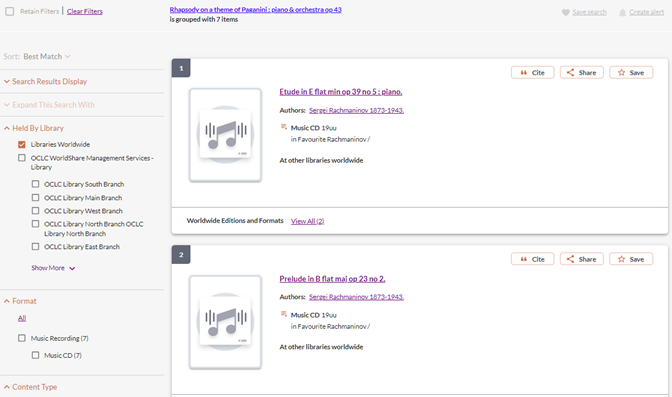
Modified search results listing the items (parts) that a given item contains:
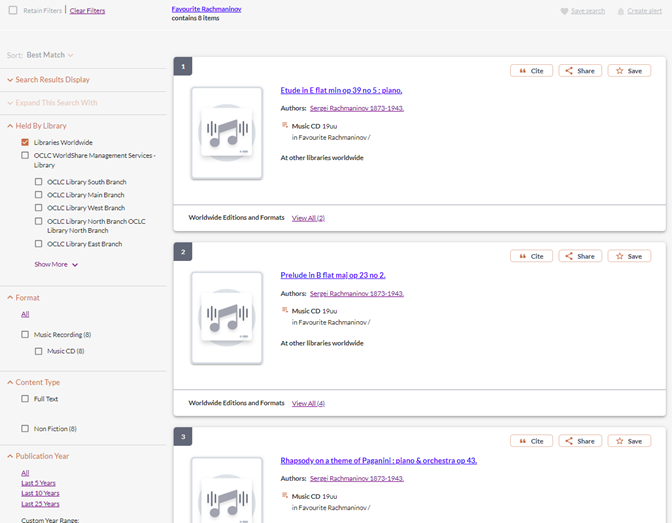
The following categories of materials and relationships are included within this feature:
- Volumes within a multipart work: encyclopedia, dictionary, etc.
- Titles in a monographic series
- Chapters within a book**
- Compositions or tracks within a musical score or recording
- Images within an album or collection
- Physical materials (e.g. pamphlets) published separately but later bound together by a library
**Note:
In scope: both chapter and book records are within WorldCat and a valid OCLC Control Number (OCN) is present in the control $w of the chapter record.
Out of scope: chapter records within central index databases from content partners.
Note: Articles within journals are out of scope for this feature.
Known issues
The following known issues affect a small proportion of relationships. We will address these in future releases and update their status on the WorldCat Discovery Known Issues page.
- When the number of relationships exceeds 100 parts, the number of relationships displayed on the item details page is limited to 100.
- For some materials with fewer than 100 parts, some records do not display all relationships.
- For some materials, relationships may not be shown when multiple linking entry fields are present.
- Multiple 773 fields, where the first 773 field does not contain relationships
- Multiple linking IDs, where the OCLC ID is not listed first
Important Links
Product website
More product information can be found here.
Office Hours
Support website(s)
Support information for this product and related products can be found at:
- WorldCat Discovery support resources
- WorldCat Discovery training
- Release notes
- OCLC customer support
- Browser compatibility chart
If you have additional questions, please contact OCLC Customer Service by calling 1-800-848-5800 or 1-614-793-8682 Monday – Friday 8 a.m. – 7 p.m. ET, or email support@oclc.org. For support enquiries in the UK and Ireland, please contact the Support Desk by calling +44-(0)114-281 60 42 or e-mailing support-uk@oclc.org. Support is available between the hours of 09:00 and 17:30 (UK Time).
Include Request ID with problem reports
When reporting an issue with WorldCat Discovery, it is extremely helpful to include the Request ID. The Request ID is found at the bottom of the screen on which the issue occurred. Including this information allows us to directly trace what happened on the request we are troubleshooting.
